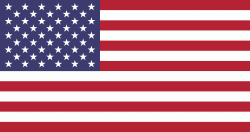Washington County (Washington County)
 |
Located within the Ozark Mountains, the county is roughly divided into two halves: the rolling Springfield Plateau in the more populous north of the county and the steeper, forested Boston Mountains in the much less populated south. It contains three segments of the Ozark National Forest, two state parks, two Wildlife Management Areas, the Garrett Hollow Natural Area, and dozens of city parks. Other historical features such as Civil War battlefields, log cabins, one-room school houses, community centers, and museums describe the history and culture of Washington County. Washington County occupies 951.72 square miles (243,220 ha) and contained a population of 245,871 people in 89,249 households as of the 2020 Census, ranking it 4th in size and 3rd in population among the state's 75 counties. The economy is largely based on the business/management, education, sales, office/administration, and poultry production industries. Poverty rates, median household income, and unemployment rates best state averages, but lag national trends. Politically, Washington County has transitioned from reliably Democratic to steadily Republican in national and state elections since the mid-20th century, with local offices following suit toward the end of the 20th century.
Washington County has long had a reputation for education in the state. The University of Arkansas, the largest four-year college in the state, was established in Fayetteville in 1871. A Washington County campus of the Northwest Arkansas Community College was opened in 2019. Today, Washington County contains eight public school districts, including two of the largest districts in the state (Springdale Public Schools and Fayetteville Public Schools) and two private schools.
Washington County began as part of the Cherokee Territory, following an 1817 treaty. The area was next known as Lovely County, and one year later Washington County was created after another Cherokee treaty. The court house was centrally located in the city of Washington, modern-day Fayetteville (renamed to avoid confusion with Washington, Arkansas in South Arkansas). The Lee Creek Valley in southern Washington County contained many of the county's early settlements, including Cane Hill and Evansville.
Arkansas College and Cane Hill College were both founded in Washington County within a day of each other in 1834, with the University of Arkansas being founded in Fayetteville in 1871. The county witnessed major battles during the American Civil War, including the Battle of Fayetteville, the Battle of Prairie Grove, and the Battle of Cane Hill. The county then was sparsely settled and the residents were divided in their allegiance, since it had few enslaved people, plantations almost nonexistent, and political news came by White River travelers, not from the pro-Confederate southern part of the state. A Butterfield Overland Mail route was established through the county in 1858, causing more families to settle there.
In 1856, what appears to be an act of vengeance, prompted by a Black woman killing, in self-defense, a white man who sexually assaulted her, led to the lynching of two Black men and the hanging of another.
The economy of Washington County was based on apples in the late 19th century. A mixture of wet weather, altitude, and loamy soils provided a good environment for apple orchards. First planted in areas around Lincoln, Evansville, and Cane Hill in the 1830s, apple orchards began all across the county. The United States Census reported a crop of 614,924 bushels of apples produced by the county in 1900, the highest in the state. Several varieties of apple were discovered in the area including Shannon Pippin, Wilson June, and most notably the Arkansas Black. The Ben Davis became the apple of choice in the area for sale and shipment across the region. Corn became the dominant crop, outselling apples by almost $500,000 in 1900.
Arkansas Industrial University was founded in the growing community of Fayetteville in 1871 after William McIlroy a donated farmland for the site. The university changed its name in 1899 to the University of Arkansas. Railroads came to Washington County after the St. Louis – San Francisco Railway (Frisco) decided to build a line to Texas through Fort Smith. Two possible routes were proposed, one passing through Prairie Grove, the other through Fayetteville. Many Fayetteville residents and farmers sold or donated land for the right of way to influence the choice. They were successful and in 1881 the first passenger train arrived at Fayetteville. The county continued to grow with more churches and schools after the railroad's completion. Rural parts of the county began losing population in the 1920s during the Great Depression, when high taxes compelled residents to move to Fayetteville or west to Oklahoma. The rural areas later became the Ozark National Forest and Devil's Den State Park.
Map - Washington County (Washington County)
Map
Country - United_States
 |
 |
| Flag of the United States | |
Indigenous peoples have inhabited the Americas for thousands of years. Beginning in 1607, British colonization led to the establishment of the Thirteen Colonies in what is now the Eastern United States. They quarreled with the British Crown over taxation and political representation, leading to the American Revolution and proceeding Revolutionary War. The United States declared independence on July 4, 1776, becoming the first nation-state founded on Enlightenment principles of unalienable natural rights, consent of the governed, and liberal democracy. The country began expanding across North America, spanning the continent by 1848. Sectional division surrounding slavery in the Southern United States led to the secession of the Confederate States of America, which fought the remaining states of the Union during the American Civil War (1861–1865). With the Union's victory and preservation, slavery was abolished nationally by the Thirteenth Amendment.
Currency / Language
| ISO | Currency | Symbol | Significant figures |
|---|---|---|---|
| USD | United States dollar | $ | 2 |
| ISO | Language |
|---|---|
| EN | English language |
| FR | French language |
| ES | Spanish language |















